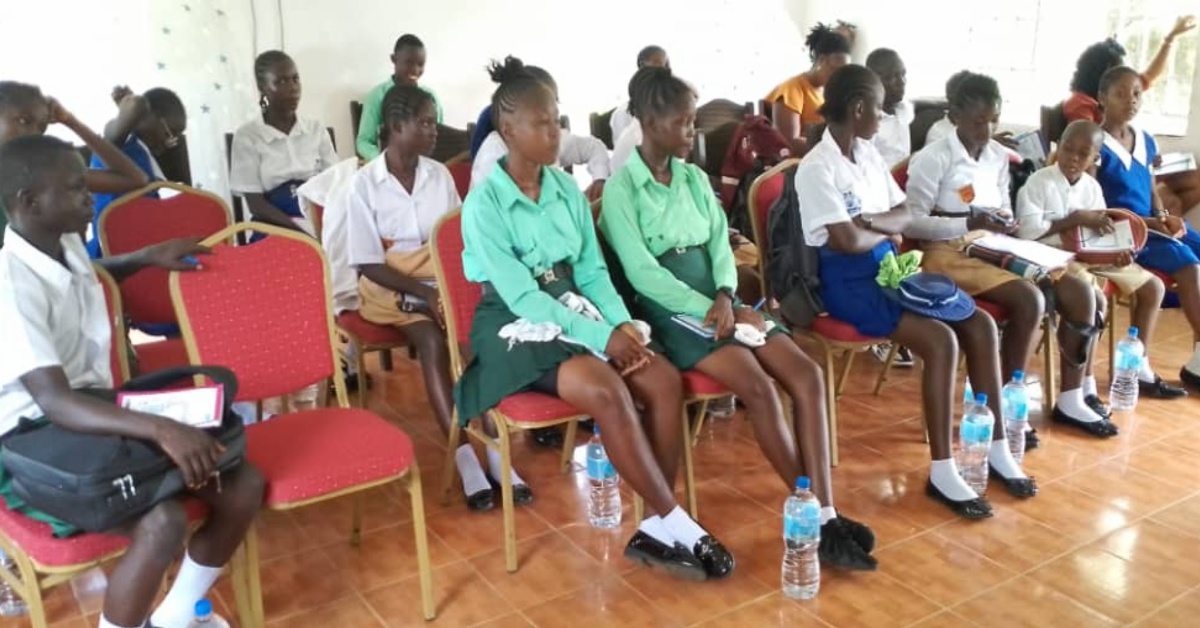On Tuesday, October 8, 2024, Marie Stopes Sierra Leone, a leading organization in reproductive health services, hosted an event aimed at educating young people about Sexual and Reproductive Health (SRH) and family planning.
The engagement took place at the Ministry of Rural Water and Sanitation along Old Council Road in Pujehun Town.
This initiative underscores Marie Stopes Sierra Leone’s commitment to raising awareness and understanding of SRH among adolescents, particularly in rural communities where access to information and services is often limited.
The event brought together students, educators, and health professionals in a collaborative effort to equip the youth with the knowledge and skills necessary for making informed decisions about their reproductive health.
Adama Dorkas Koroma, the Regional Integrated Marketing Lead of Marie Stopes Sierra Leone, provided an overview of the engagement, highlighting the importance of educating young people about SRH. She pointed out the challenges adolescents face in accessing reliable information and services.
“Adolescents are at a critical stage in their lives where they need accurate information to make informed decisions about their health,” Koroma said. “This engagement is part of our ongoing effort to ensure that young people, especially in rural areas, are equipped with the knowledge to protect their health and future.”
Koroma elaborated on the role of family planning in preventing unintended pregnancies, reducing maternal mortality, and promoting gender equality. She emphasized that when young people are empowered with knowledge about contraceptive options and reproductive health, they are better positioned to pursue their education and career goals without the burden of early pregnancies.
Throughout the engagement, participants took part in interactive sessions that included discussions on various SRH topics, such as the importance of contraceptives, menstrual hygiene, sexually transmitted infections (STIs), and adolescents’ rights to access reproductive health services.
Experts from Marie Stopes Sierra Leone provided practical demonstrations on different contraceptive methods and addressed common myths surrounding family planning.
Koroma noted that the sessions were designed to encourage open dialogue, allowing students to ask questions and share their experiences regarding the challenges they encounter in accessing SRH services.
Many students expressed concerns about the stigma associated with family planning in their communities, which often hinders young people from seeking the help they need.
On behalf of her peers, Mariama Fortune, a pupil from Holy Rosary Secondary School, expressed gratitude to Marie Stopes Sierra Leone for organizing the event. She praised the initiative, stating that the knowledge gained would be invaluable in making responsible decisions about reproductive health.
“We have learned so much today. This information will help us make better decisions about our health, especially regarding family planning. I now feel more confident discussing these topics and helping others in my community understand their importance,” Fortune remarked.
Looking ahead, Marie Stopes Sierra Leone plans to conduct similar engagements in other districts, with the ultimate goal of reducing teenage pregnancy rates and improving access to reproductive health services for all young people, particularly in underserved communities.











